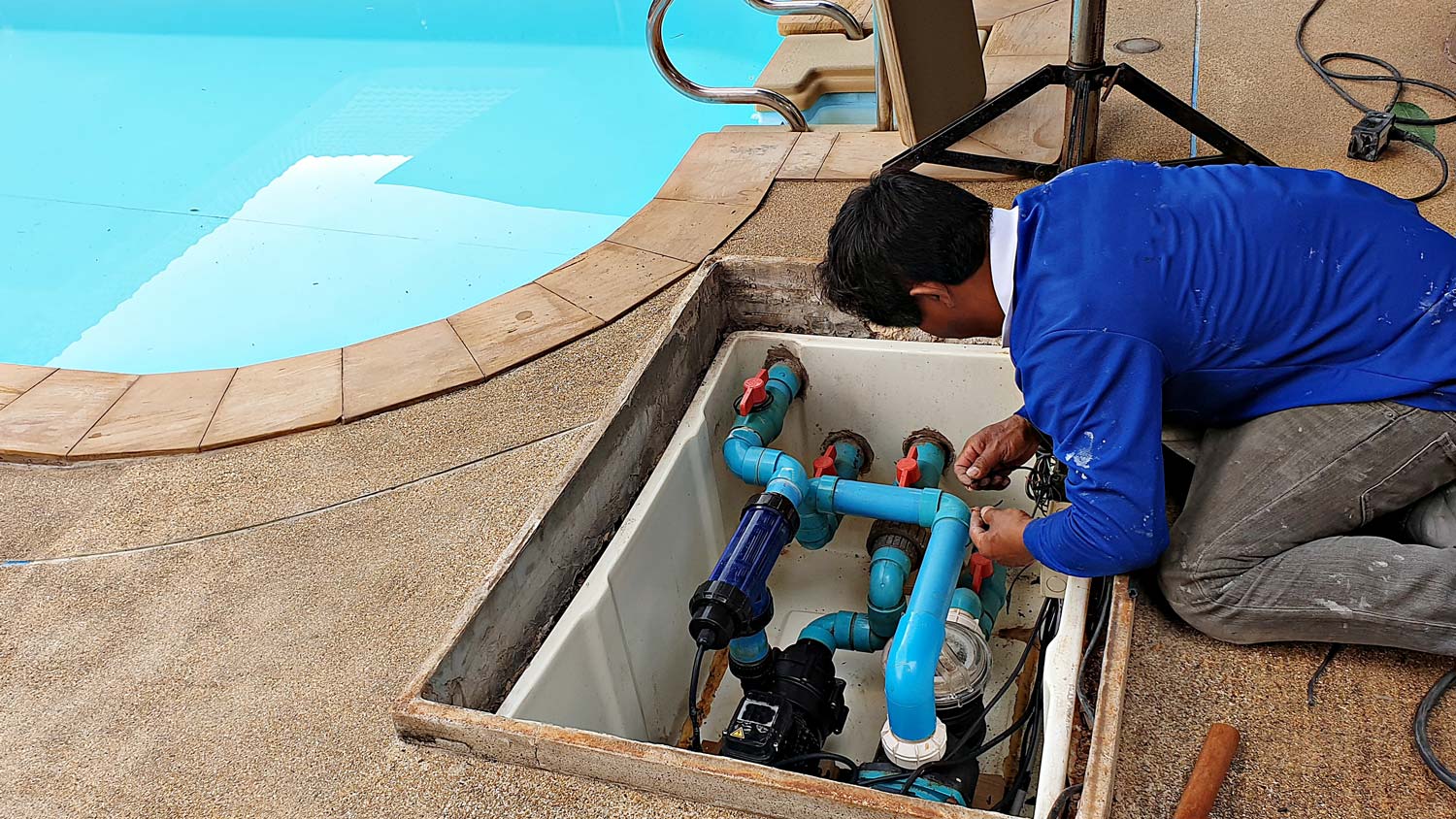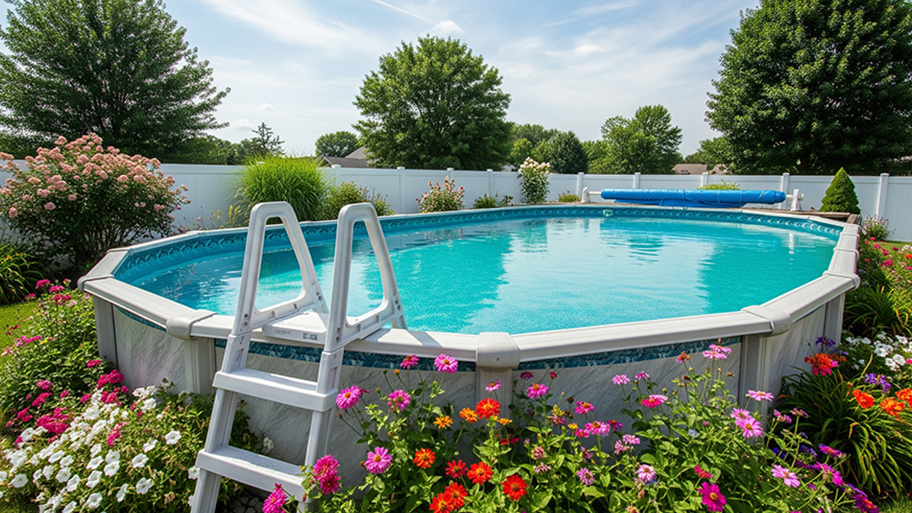
Considering a swimming pool for your backyard? Find out everything you need to know about in-ground pool costs, from materials to labor and more.
Strange sounds and murky water could mean your pump is on the fritz


Pool pumps are the workhorses that keep pool water clean and balanced. They should last at least eight years, but when yours starts to wear down, you could end up with murky, algae-filled water. Before you dive head first into how to replace a pool pump, here’s everything you need to know about how long pool pumps last.
Pool pumps last between eight and 15 years on average. The pump's size, variety, and brand all factor into its life expectancy.
You can prolong the lifespan of a pool pump by:
Pairing it with the proper filter
Choosing the correct pool pump size (if the pump is too small, for example, it may have to run for longer and could burn out more quickly)
Replacing the motor every eight to 10 years
Changing your pool filter every two to three years
Addressing early signs of a pool pump leak
Opting for a variable-speed pump that runs only when necessary

Your pool pump will certainly let you know if it's time to call in a local pool repair team. Strange sounds, weak suction, and an overheating motor are all signs it either requires repair or is on its last legs. Knowing how long a pool pump lasts overall, however, can help you avoid a costly replacement.
A leaking pool pump can create puddles around your pump or air bubbles shooting out into your pool. In some cases, tightening the connections of your pool pump will do the trick. If your pump is past its prime, it could be a sign the valves are no longer secure enough to function.
Never ignore strange sounds coming from your pool pump. Anything above a low hum—including popping sounds, screeches, or grinding—is likely a sign that you either have a broken motor or a leak.
Like all machines with a motor, a pool pump will shut off if something persistently keeps it from cooling down or running smoothly. If your pool pump frequently turns off, it could be a sign that it is overheating. A pool pump should never be too hot to handle with your hands. If you're concerned that it has heated to this level, avoid touching it and speak with a professional for guidance.
The gauge dial on top of your filter tank notes the pressure inside the system. The appropriate PSI will depend on your model. If the pressure is lower than it should be, it could be a sign of a clog or a leak in your pump. If the issues persist, it could be helpful to hire a pool electrician to ensure everything is hooked up properly.
Shocking a pool is the process of adding chemicals to keep unwanted organic material in your water at bay. If you find that your water quickly turns murky or grows algae, it could be a sign your pool pump needs a look.
While it can be hard to pinpoint that it is coming from your pool motor, a sudden uptick in your utility bills can also indicate a problem. The price to run a pool pump should range from $30 to $150 a month. If your bill is significantly higher than that, it may be that your pool pump is working overtime to function.
If replacement is the best option, the cost of a new pool pump averages about $1,750, but you'll find some budget-friendly brands for as little as $300. If you can, opting for pool pump repairs can save you a lot of money. Pool pump motor repairs, for example, range between $250 and $650. Additional pool repair costs, such as filter and pipe replacement, are often necessary investments to prolong your pool pump's life expectancy.
From average costs to expert advice, get all the answers you need to get your job done.

Considering a swimming pool for your backyard? Find out everything you need to know about in-ground pool costs, from materials to labor and more.

Dreaming of summertime swimming? Find out aboveground pool costs, including prices for materials, fun extras, and professional installation.

Discover how much pool maintenance costs, including average prices, cost factors, and expert tips to help you budget and keep your pool sparkling all season.

Learning how to drain a pool is just as important as all the other upkeep tips you've gathered along the way. Here's a step-by-step DIY guide.

A pool liner can protect your pool from leaks and improve its appearance. Learn more about the different types of pool liners and which is right for your pool.

Swimming pools come in many sizes, but this pool size chart will simplify your choices and give you tips on how to choose the perfect size for your space.